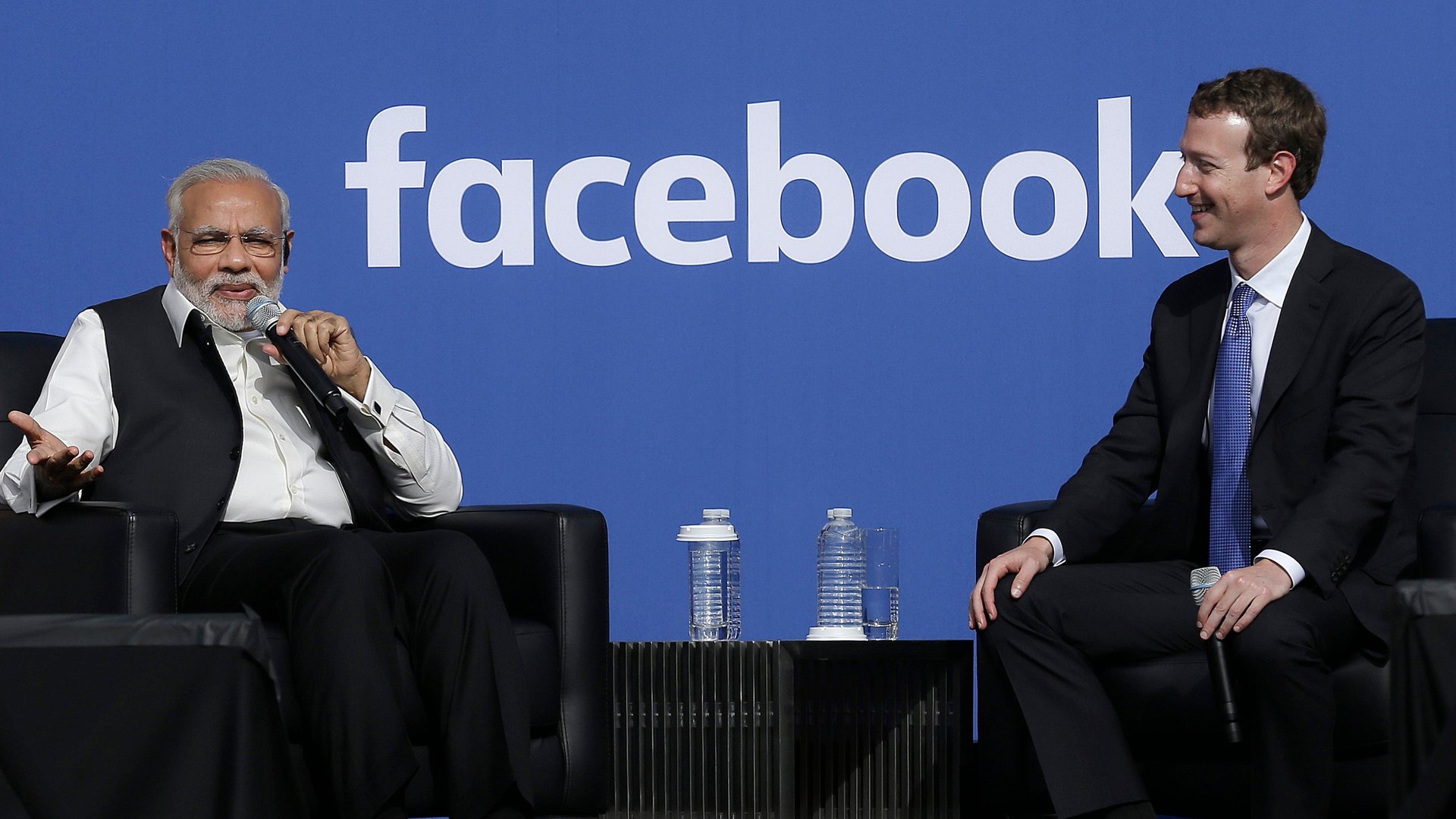Silicon Valley should seize the chance to push for global internet freedom
The tech titans of Silicon Valley have become international kingmakers. Executives in the startup mecca rubbed elbows with world leaders this fall, taking meetings with Indonesia president Joko Widodo, India prime minister Narendra Modi and Xi Jinping, president of China.


The tech titans of Silicon Valley have become international kingmakers. Executives in the startup mecca rubbed elbows with world leaders this fall, taking meetings with Indonesia president Joko Widodo, India prime minister Narendra Modi and Xi Jinping, president of China.
Silicon Valley executives face a dilemma. They want to expand their business into other countries. That includes places where democracy is less secure and where the internet is used a means of control and repression. Yet it’s also in their best interests to keep the Internet open and accessible.
This can be a difficult line to walk—as no company knows better than Google.
Google entered China in 2006, complying with the country’s censorship rules. “Launching a Google domain that restricts information in any way isn’t a step we took lightly,” Google executives posted in the company’s blog. But they explained that ultimately the decision came down to providing “the greatest access to information to the greatest number of people.”
The effort failed. After Chinese hackers gained access to Google servers and hacked into several Gmail accounts, including a number of human rights activists, Google pulled out of the country in 2010.
Google’s experience appears to have led the company to conclude that its business isn’t only about money and user growth. The exchange of ideas and the protection of privacy also fall under its purview.
It’s no surprise, then, that Silicon Valley titans have since taken it upon themselves to push for Internet freedom and access. In September, Facebook founder and CEO Mark Zuckerberg addressed the United Nations, appealing for the body to recognize the access to the internet as a human right.
Given the ambivalence that many world leaders have about human rights—let alone the internet—it will be a long time before serious and unified discussions on the subject commence.
True to the Silicon Valley ethos, executives are not waiting around for international policy to catch up. Instead they are moving to shape the future of the internet in private meetings with foreign leaders.
India, China, and Indonesia each have mixed records on internet freedom. But all are eager to grow their digital economies.
In Indonesia, for example, internet penetration is 17% and growing fast. How it grows is obviously a point of concern. According to the US NGO Freedom House, Indonesia’s internet is “partly free.” People in the country face many obstacles to accessing the Internet, as well as limits on the content they can see see and violations of user rights.
Silicon Valley executives now have an opportunity to strike a blow for internet freedom. Widodo would like to boost Indonesia’s digital capability. If Silicon Valley titans act wisely, they may be able to persuade him to do so on their terms.
It’s clear that the fate of the global internet has left the hands of Washington policymakers. “Silicon Valley’s leaders are re-making foreign policy and geo-politics just by being the so-called ‘heads of state’ of their own ‘tech-empire,’” Allen Taylor, vice president of the global nonprofit Endeavor, tells Quartz.
This shift in the balance of power may work out for the best. It depends on whether Silicon Valley executives are able to remember that they are not just doing business, but shaping future minds.